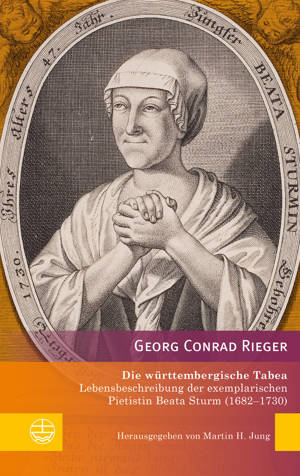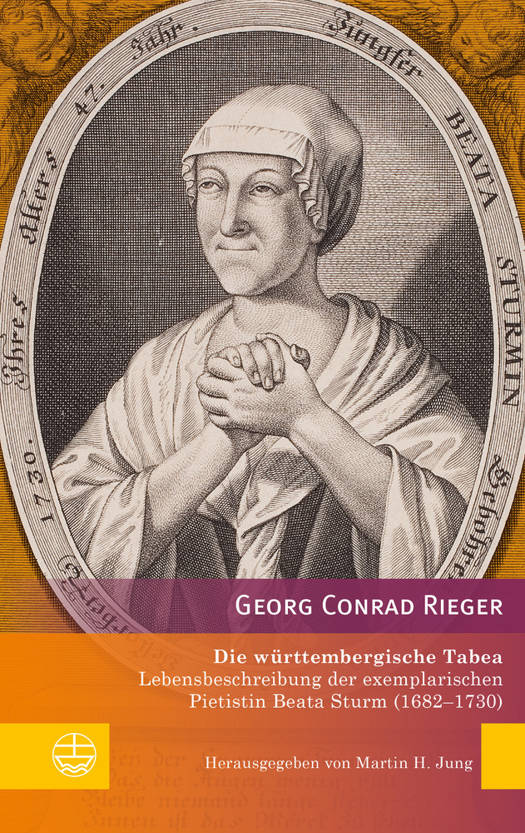
Bedankt voor het vertrouwen het afgelopen jaar! Om jou te bedanken bieden we GRATIS verzending (in België) aan op alles gedurende de hele maand januari.
- Afhalen na 1 uur in een winkel met voorraad
- In januari gratis thuislevering in België
- Ruim aanbod met 7 miljoen producten
Bedankt voor het vertrouwen het afgelopen jaar! Om jou te bedanken bieden we GRATIS verzending (in België) aan op alles gedurende de hele maand januari.
- Afhalen na 1 uur in een winkel met voorraad
- In januari gratis thuislevering in België
- Ruim aanbod met 7 miljoen producten
Zoeken
Die Wurttembergische Tabea
Lebensbeschreibung Der Exemplarischen Pietistin Beata Sturm (1682-1730)
Georg Conrad Rieger
€ 66,45
+ 132 punten
Uitvoering
Omschrijving
A woman, weak of vision, folding her hands in prayer - this is how the court painter Isaak Lieffkopf depicted the pietist Beata Sturm (1682-1730) from Stuttgart. In the title of his book her biographer Georg Conrad Rieger (1687-1743) compares her to the woman Tabitha (Acts 9) from the New Testament, thus indicating who she actually was: a disciple of Jesus, who did much good, gave many alms and in whom God's power over illness and death was demonstrated. Beata Sturm confessed to Rieger, her pastoral counsellor, that she would have preferred to become a preacher. Shortly after her death, Rieger started to write her biography. In Wurttemberg, maid Sturmin was worshipped like a saint after her death. Similarly, in his biography that contains personal knowledge of Beata Sturm, Rieger aims to depict her life and work in a way that she could become a role model for many. His book is an example of a Protestant hagiography, but also includes contemporal insights into the practice of piety in the life in the early 18th century. Martin H. Jung is Professor of Historical Theology at the University of Osnabruck. Since 1999 he is a member of the Historical Commission for the Study of Pietism. The exploration of pietism in Wurttemberg has been one of his main research subjects since his PhD.
Specificaties
Betrokkenen
- Auteur(s):
- Uitgeverij:
Inhoud
- Aantal bladzijden:
- 280
- Taal:
- Duits
- Reeks:
- Reeksnummer:
- nr. 14
Eigenschappen
- Productcode (EAN):
- 9783374066773
- Verschijningsdatum:
- 1/10/2020
- Uitvoering:
- Paperback
- Formaat:
- Trade paperback (VS)
- Afmetingen:
- 122 mm x 18 mm
- Gewicht:
- 284 g

Alleen bij Standaard Boekhandel
+ 132 punten op je klantenkaart van Standaard Boekhandel
Beoordelingen
We publiceren alleen reviews die voldoen aan de voorwaarden voor reviews. Bekijk onze voorwaarden voor reviews.









